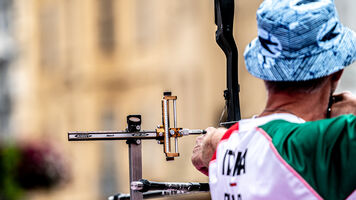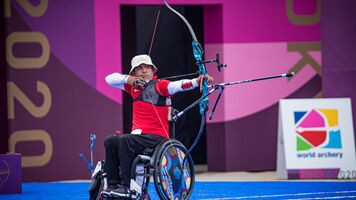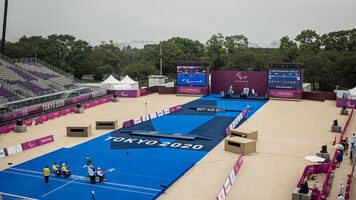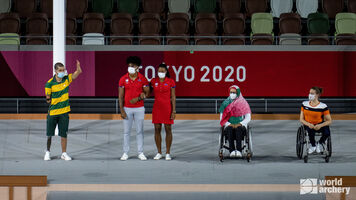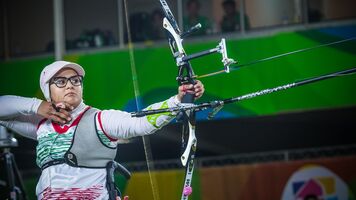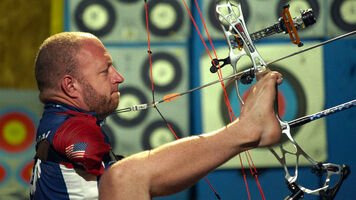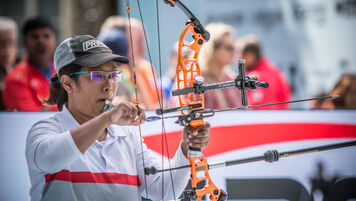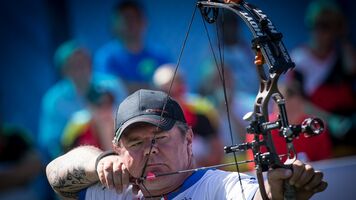Reviewed: Paralympic documentary ‘Rising Phoenix’ featuring Matt Stutzman
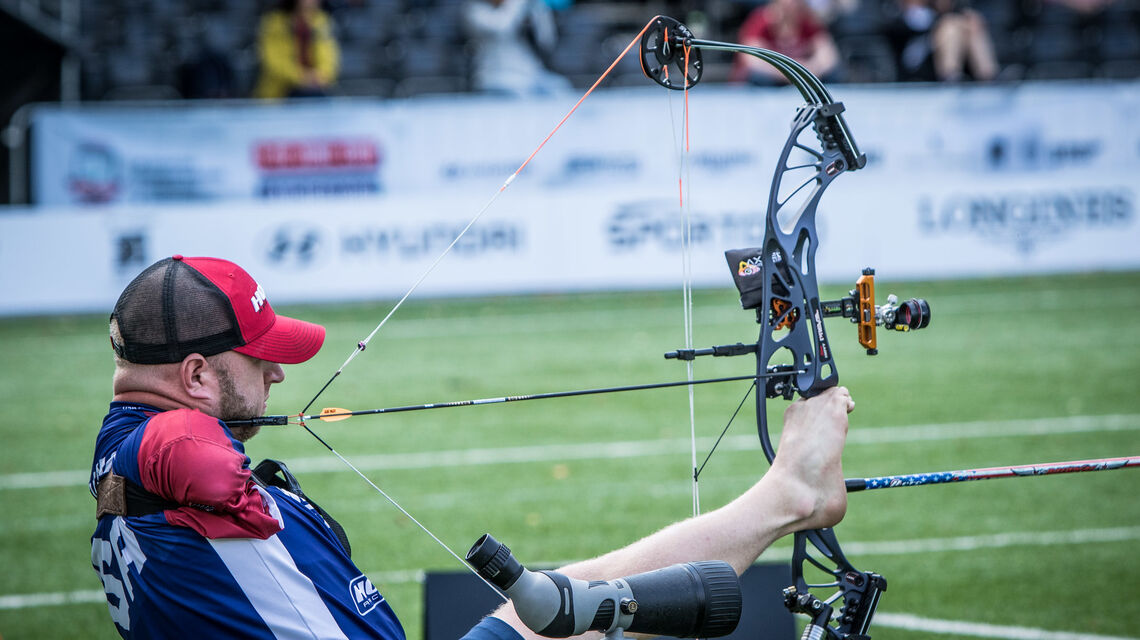
Rising Phoenix, the feature-length documentary released in August 2020 on Netflix, will stand as an important milestone in the Paralympic movement. It’s a high-gloss, dramatic celebration of the power of sport to transform lives.
Clearly, it was planned to coincide with the Tokyo competition this year but, of course, we’ll all have to wait another 12 months for that.
In the meantime, filmmakers Ian Bonhôte and Peter Ettedgui have produced a piece of work that casts the athletes as superhuman.
As one athlete puts it: “In the Olympics, all the bodies look the same. In the Paralympics, none of the bodies look the same.” There is a shading of Marvel superheroes in this, the film even featuring the athletes as Greek sculptures. The subtext is clear – these are the real superheroes.
Bookended by the scarred, otherworldly figure of Italian fencer Bebe Vio, wandering around what looks like a crumbling mansion, it takes us through the stories of several well-known modern Paralympians including wheelchair racer Tatyana McFadden and runner Jean Baptiste Alaize.
It also very much features archer Matt Stutzman, better known in some circles as the Armless Archer, twice a Paralympian and silver medallist at London 2012. Stutzman’s story is more personal than the other athletes, focusing on family, with a lot of archive material.
You might expect a Paralympic narrative to involve overcoming difficulties – but you might not expect it to be straight-out funny. Matt is hilarious. He’s wry and sparkling. His personality leaps off the screen.
As he says about his gradual realisation that he could do everything people with arms could do – including climbing trees – he reasoned: “I could drive a car with my feet, and outrace 90% of the people around me. A car doesn’t stereotype the driver. It doesn’t care if you have arms or not. It just wants to be driven.”
Over footage of Matt doing doughnuts in his Hoyt-branded truck, he adds: “That’s why I fell in love with archery. A bow just wants to be shot. Everybody has a superpower they find out at some point in their lives.”
Weaving in and out of the stories, the film also takes us through the long and fascinating history of the movement, from the post-war origins through to the Stoke Mandeville Games, held at the same time as the 1948 Olympics in London, finally launching the first official Paralympic Games in Rome in 1960.
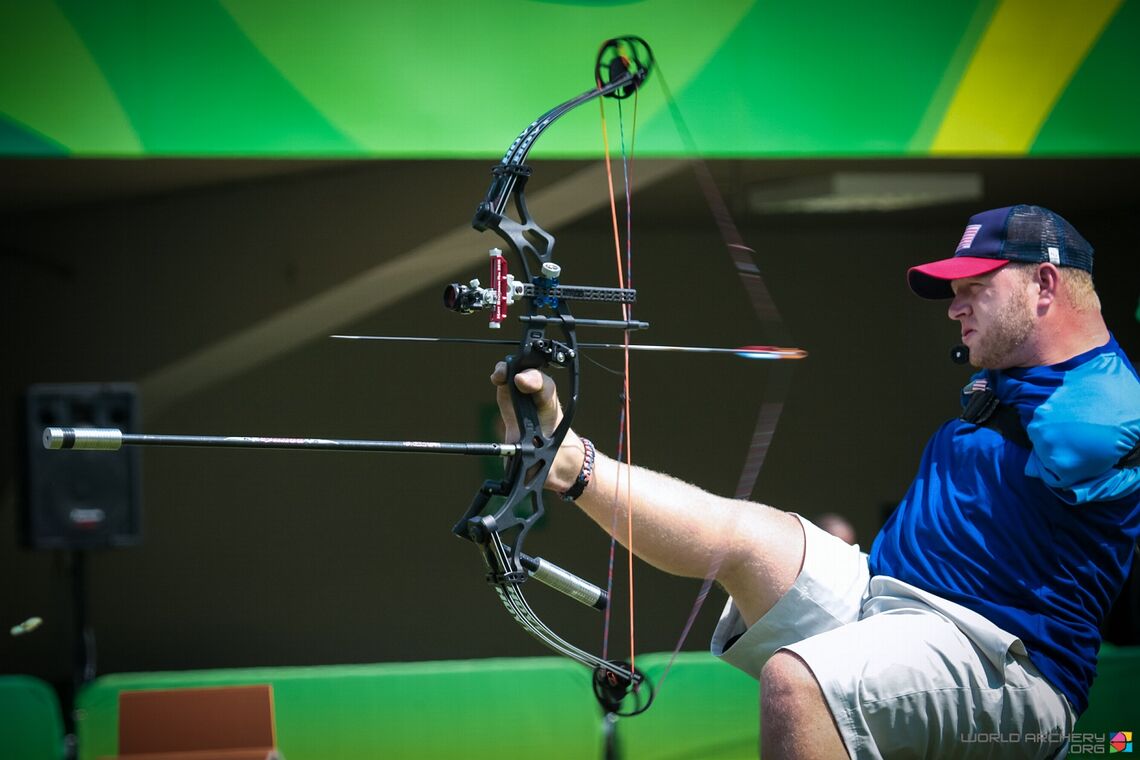
It has not all been plain sailing. The Soviet Union refused to hold a Paralympic Games in 1980; they were held in Arnhem in the Netherlands instead. In Rio, financial problems meant that – just weeks before the event was due to start – it was touch and go as to whether they would take place at all. Although, in the end, the Rio public embraced the Games warmly.
It was a terrifying moment for a movement that had seen such huge public strides at London 2012, with every ticket sold and a shift in focus from narratives and stories to sheer sporting excellence.
As Philip Craven, the blunt former president of the International Paralympic Committee, put it, the Paralympics had become vital simply because of “the atmosphere of being part of something bigger than yourself”. The Games had become the shop window of the movement and had taken on a power to transform the people in the audience as well as the athletes.
Stutzman talks us through his match at the Sambodromo in Rio, where he lost after shooting an eight on the last arrow. He blamed the loss on an equipment malfunction, a broken nock, for which his coach MJ Rogers took responsibility.
The ambition remains. With his fitness improving, he bullishly told NBC Sports: “I can only imagine what a whole ’nother year of me eating right, shooting and mentally training as well will add to what I’ve got going into the next Games.”
The high production values and top-notch editing pull every ounce of drama from the stories on display.
You will not forget in a hurry the astonishing, bloody bout of wheelchair fencing between Bebe Vio and China’s Jingjing Zhou, fighting for the gold medal in Rio, that closes Rising Phoenix. It’s an outpouring of sheer will and determination, and one of the great sporting moments of this century.



